By Mr. Adrian Teo
Understanding Intellectual Property (IP) and Its Importance
Intellectual property (IP) refers to the legal rights that protect creations of the mind, such as inventions, brand names, artistic works, and proprietary business processes. In Singapore, IP protection is governed by the Intellectual Property Office of Singapore (IPOS), which oversees trademark, patent, copyright, and trade secret regulations.
Failing to protect IP can lead to unauthorized use by competitors, resulting in financial losses and reputational damage.A study conducted by the European Patent Office and the European Union Intellectual Property Office (2025) highlights the significant impact of intellectual property (IP) rights on firm performance. According to their firm-level analysis, companies that own IP rights experience a 23.8% higher revenue per employee compared to those without such protections. When adjusted for variables such as industry, company size, and geographical location, this revenue advantage increases to 41%. This underscores the crucial role of patents, trademarks, and other IP protections in fostering business growth and competitiveness within the European Union. Understanding and enforcing IP rights is crucial for companies to strengthen their market position and prevent costly disputes.
Common Types of Intellectual Property Disputes
IP disputes arise when another party misuses or claims ownership over protected intellectual assets. The following are the most frequent conflicts:
1. Trademark Infringement

Trademarks distinguish a company’s products or services from competitors. Unauthorized use of a brand name, logo, or slogan can lead to customer confusion and dilution of brand value.
- Example: In Singapore, the case of Hai Tong Co (Pte) Ltd v. Ventree Singapore Pte Ltd highlighted the importance of similarity tests in trademark disputes. The Singapore Court of Appeal noted that the marks “Lady Rose” and “Rose Lady” were sufficiently similar to create a likelihood of confusion among consumers. The courts assess factors such as visual, phonetic, and conceptual similarities to determine infringement. The juxtaposition of words in a way that conveys a distinctive character was crucial in establishing this similarity.
- Legal Protection: Businesses should register trademarks with IPOS, which grants exclusive rights for ten years, renewable indefinitely.
Enforcement: Companies can issue cease-and-desist letters, file opposition proceedings, or take legal action under the Trade Marks Act (1998).
2. Patent Conflicts
Patents protect inventions and technological advancements. Disputes often occur when businesses claim unauthorized use of patented technology.
- Example: The Main-Line Corporate Holdings Ltd v. United Overseas Bank Ltd case in Singapore involved a patent dispute over electronic payment processing. The court ruled that detailed patent specifications and prior art searches are critical for upholding claims.
- Legal Protection: Patents must be registered with IPOS and are valid for 20 years, subject to annual renewals.
Enforcement: Companies can apply for an injunction, damages, or licensing agreements under the Patents Act (1994).
3. Copyright Violations
Copyright protects original creative works such as literature, music, software, and visual designs.
- Example: In 2024, a Singaporean content creator successfully sued a competitor for unauthorized use of digital illustrations. A recent case involving Singaporean content creator Lee Xin Li highlights the legal challenges surrounding unauthorized use of digital illustrations. Lee successfully confronted a competitor for allegedly plagiarizing his artwork, which was used without permission in a food court’s renovations. This incident underscores a broader trend of increasing plagiarism in Singapore, particularly exacerbated by advancements in technology and generative AI, which can facilitate unauthorized reproductions of original works.
- Legal Protection: Copyright protection is automatic upon creation but can be formally registered for added enforcement benefits.
Enforcement: Businesses can file infringement claims under the Copyright Act 2021, which provides statutory damages up to SGD 150,000 per work.
4. Trade Secret Misappropriation
Trade secrets include confidential business information, formulas, or processes that provide a competitive advantage.
- Example: The I-Admin (Singapore) Pte Ltd v. Hong Ying Ting case set a precedent in Singapore for trade secret disputes, highlighting the importance of contractual confidentiality clauses.
- Legal Protection: Businesses should implement non-disclosure agreements (NDAs) and confidentiality policies to safeguard trade secrets.
Enforcement: Companies can seek injunctive relief and damages under common law principles and the Protection Against Harassment Act.
Strategies to Protect Business IP Assets
To minimize the risk of IP disputes, businesses should adopt proactive protection strategies:
1. Register and Monitor IP Assets
- Trademarks: Register trademarks with IPOS to gain legal exclusivity.
- Patents: Conduct thorough prior art searches before filing patents.
- Copyrights: Use watermarking and metadata embedding to deter infringement.
- Trade Secrets: Implement strict access control measures within the company.
2. Establish Clear IP Policies
- Draft employee agreements covering IP ownership and confidentiality obligations.
- Develop licensing frameworks for third-party use of IP assets.
3. Enforce IP Rights Effectively
- Cease-and-Desist Notices: Promptly issue legal notices to infringers.
- Mediation and Arbitration: Engage in alternative dispute resolution (ADR) to avoid lengthy litigation.
Court Proceedings: Pursue legal action if necessary, ensuring compliance with Singapore’s IP laws.
The Role of Legal Counsel in IP Disputes
Consulting experienced lawyers is essential for businesses facing IP disputes. Lawyers provide guidance on IP registration, enforcement, and dispute resolution, helping businesses navigate complex legal frameworks.
Why Seek Legal Advice?
- Strategic Planning: Lawyers assist in developing comprehensive IP strategies.
- Litigation Support: Legal counsel ensures strong representation in IP litigation.
- Risk Management: Early legal intervention helps prevent costly disputes.
Conclusion
Intellectual property is a vital asset for businesses, and protecting it requires vigilance and legal expertise. By understanding Singapore’s IP laws, implementing protective measures, and seeking professional legal guidance, businesses can safeguard their innovations and brand identity. Proactive IP management not only minimizes disputes but also ensures long-term business success in a competitive market.







